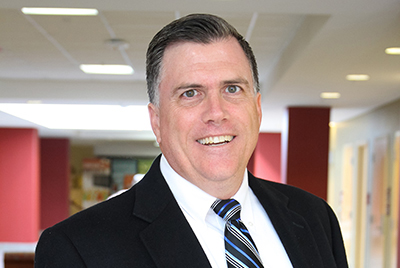J. Carson Smith
In addition to being a professor, Dr. Smith serves as the director for the Exercise for Brain Health Laboratory and the Cognitive Motor Neuroscience Laboratories within the Department of Kinesiology. He leads multidisciplinary teams to investigate the impact of acute and chronic exercise on brain health in older adults. He uses multi-modal magnetic resonance imaging (MRI), neuropsychological testing, physical function testing and analyses of blood biomarkers to document how exercise protects the brain from age-related cognitive decline, particularly in healthy older adults at increased genetic risk for Alzheimer's disease, and mental health problems, such as depression and anxiety.
Departments/Units
- Department of Kinesiology
- Center on Aging
Areas of Interest
Exercise; Cognition; Aging; Physical Activity; Alzheimer's Disease
Doctor or Philosophy, Kinesiology, 2000
University of Georgia
KNES 445/645 Exercise and Brain Health
KNES 350 Psychology of Sports & Exercise
Won J, Callow DD, Nielson KA, Faroqi-Shah Y, and Smith JC (in press). Cerebellar functional connectivity is associated with verbal fluency improvement after exercise training in older adults. The Cerebellum.
Alfini AJ, Weiss LR, Won J, Michelson CS, Simon C, Callow DD, and Smith JC (in press). Impact of exercise on older adults’ mood is moderated by sleep and mediated by altered brain connectivity. Social, Cognitive, and Affective Neuroscience.
Won J, Alfini AJ, Weiss LR, Hagberg JM, and Smith JC (in press). Greater semantic memory activation after exercise training cessation in older endurance-trained athletes. Journal of Aging and Physical Activity.
Callow DD, Arnold-Nedimala NA, Jordan LS, Pena G, Won J, Woodard JL, and Smith JC (2020). The mental health benefits of physical activity in older adults survives the COVID-19 pandemic. American Journal of Geriatric Psychiatry, 28, 1046-1057.
Won J, Alfini AJ, Weiss LR, Nyhuis CC, Spira AP, Callow DD, and Smith JC (2019). Caudate volume mediates the interaction between total sleep time and executive function after acute exercise in healthy older adults. Brain Plasticity, 5, 69-82.
Won J, Alfini AJ, Weiss LR, Callow DD, and Smith JC (2019). Brain activation during executive control after acute exercise in older adults. International Journal of Psychophysiology, 146, 240-248.
Won J, Alfini AJ, Weiss LR, Michelson CS, Callow DD, Ranadive SM, Gentili RJ, and Smith JC (2019). Semantic memory activation after acute exercise in healthy older adults. Journal of the International Neuropsychological Society, 25, 557-568.
Alfini AJ§, Weiss LR§, Nielson KA, Verber MD, and Smith JC (2019). Resting cerebral blood flow after exercise training in mild cognitive impairment. Journal of Alzheimer’s Disease, 67, 671-684.
Smith JC, Lancaster MA, Nielson KA, Woodard JL, Seidenberg M, Durgerian S, Sakaie K, and Rao SM (2016). Interactive effects of physical activity and APOE-ε4 on white matter tract diffusivity in healthy elders. NeuroImage, 131, 102-112.
Smith JC, Nielson KA, Woodard JL, Seidenberg M, Durgerian S, Hazlett KE, Figueroa CM, Kandah CC, Kay CD, Matthews MA, and Rao SM (2014). Physical activity reduces hippocampal atrophy in elders at genetic risk for Alzheimer’s disease. Frontiers in Aging Neuroscience, 6 (61), 1-7.
